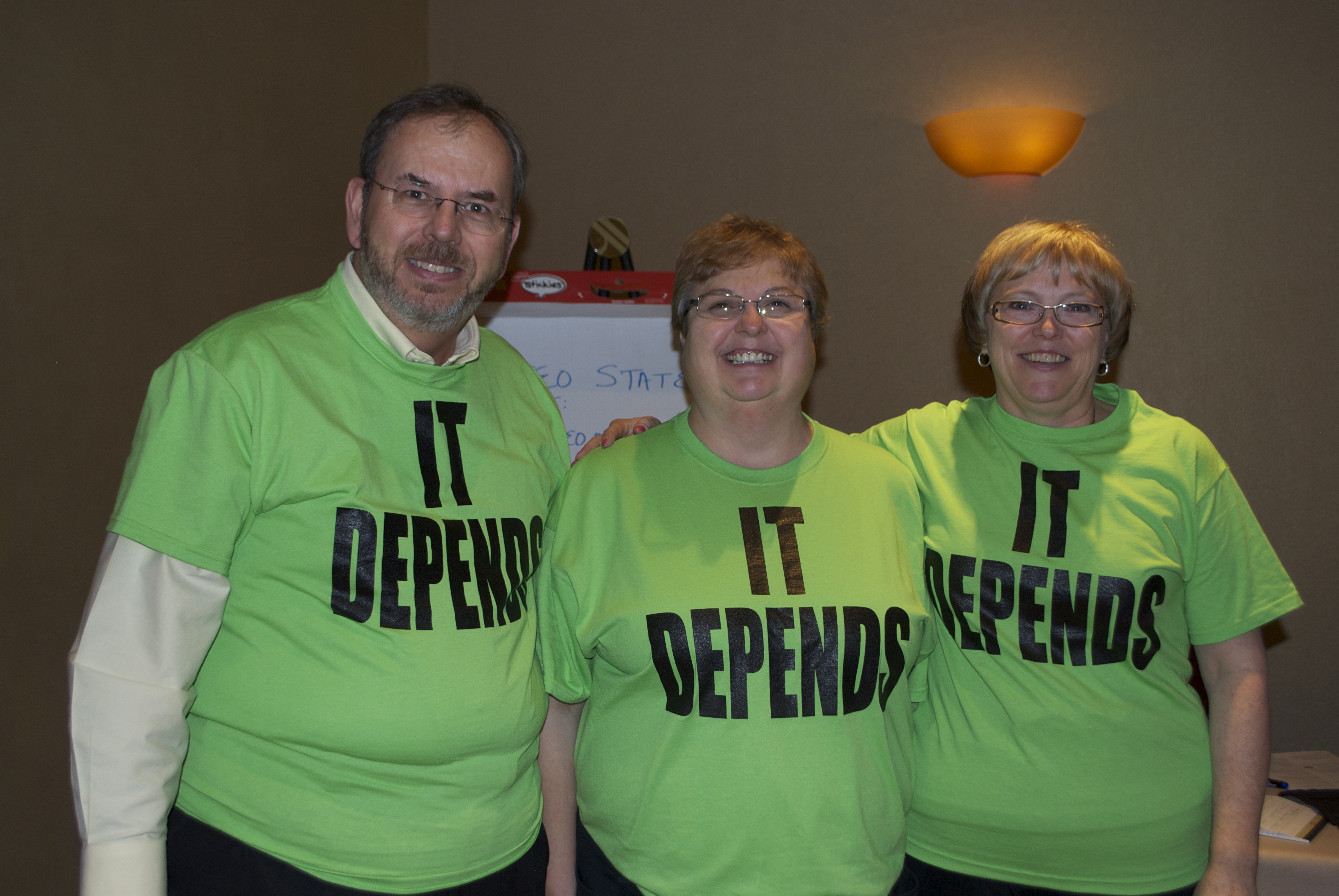Dispatch from Denver - Friday
Published by: WCET | 10/29/2011
Tags: Open Educational Resources, State Authorization, WCET, WCET Annual Meeting, WOW Award
Published by: WCET | 10/29/2011
Tags: Open Educational Resources, State Authorization, WCET, WCET Annual Meeting, WOW Award
Hello from the WCET Annual Conference –
More fun and learning from Denver. The temperatures outside warmed up and so did the sessions inside. Here are more thoughts, comments, and things we learned today…
Mike Goldstein, from the Dow Lohnes law firm, informed us that state authorization is just the “tip of the iceberg” in federal regulations regarding distance education. Regulations for us to watch (and WCET will be watching these) are:
For the session Videoconferencing Passe or in Vogue?, Luc Comeau said that “videoconferencing is not passé, it is very effective in storytelling.” Networks in UT, WY, ND, and LA are all seeing resurgence in use of their video networks. One trend is the experimentation of additional technologies, e.g. lecture capture, to explore enhancements to these networks. More sessions on the future of videoconferencing!

In the session State Authorization – One Year Later, former Florida regulator Jeannie Yockey-Fine said that “this is not rocket science.” It is up to institutions to know what activities they are doing in a state, know the regulations of a state, and get to know the regulators in the states. Create a relationship with the regulators. It is not time to sit back and wait.
The Richard Jonsen Award is given each year to an individual who has made a significant contribution to the e-learning community and WCET during his or her career. We are please that Michael Offerman, president emeritus of Capella University, was named the 2011 recipient of WCET’s most prestigious award.
Three WCET Outstanding Work (WOW) Awards were honored:
No one got hurt during the 2011 “WCET Smackdown,” unless their sides hurt from laughing. Presenters were challenged to present compelling ideas in 20 slides that are displayed for 20 seconds each. It’s fast, it’s furious, and it’s fun. The team of Myk Garn and Ritchie Boyd were a big hit with their “You Learn, We Earn” tongue-in-check analysis of the current state of higher education. We captured the presentations on video for your enjoyment.
Cable Green (Creative Commons) talked about creating and using “non-rivalrous” educational materials. According to the IT Law Wiki, a good is non-rivalrous if the use of the good by one individual does not limit the amount of the good available for consumption by others. Open educational resources fill the bill. We also talked about how WCET can help continue support for the Trade Adjustment Assistance Community College and Career Training Grant Program.
1 reply on “Dispatch from Denver – Friday”
We loved the conference! Here are our recap notes that others may benefit from as well:
http://umslonline.wordpress.com/2011/11/04/wcet-denver-2011/